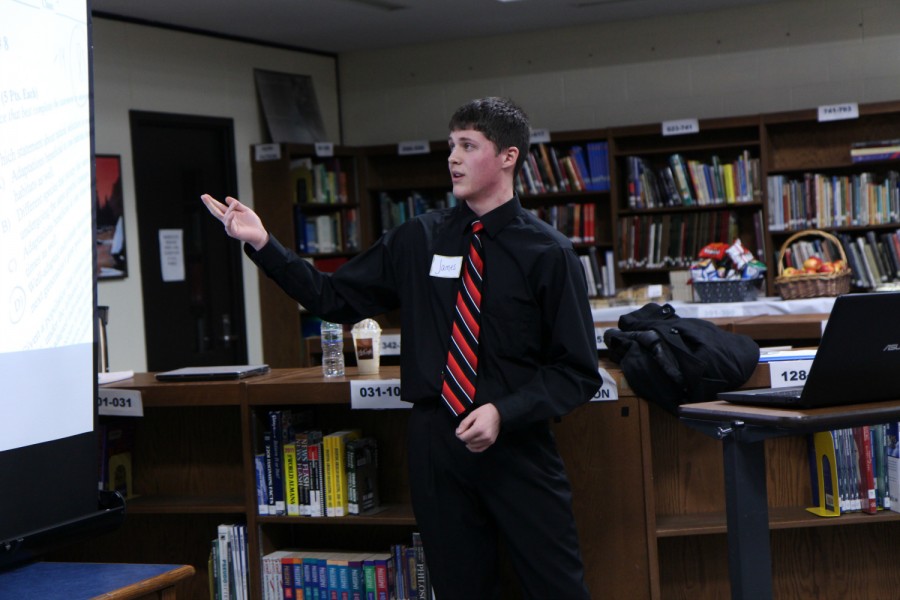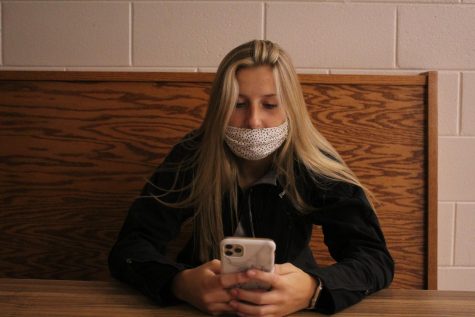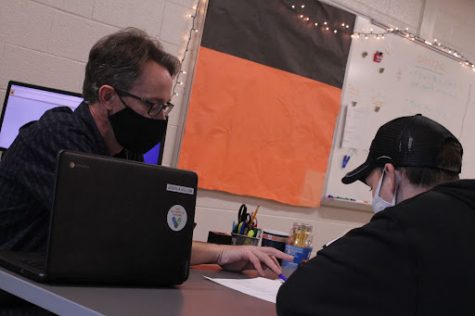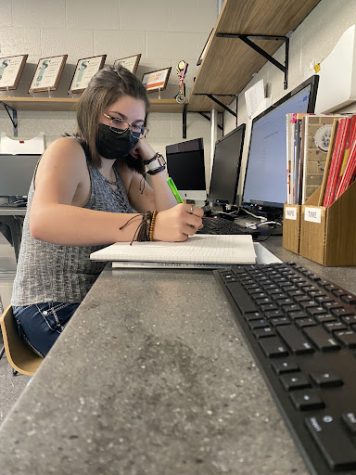The terrors of public speaking
Up at the podium, tears are ready to fall. Body shaking and chest hurting makes it difficult to get the words out. When it is over, relief floods the body because she is no longer in her peers’ line of sight. Public speaking is difficult for sophomore Erin Keiser.
“I’ve always been shy, and I haven’t talked to a lot of people,” Keiser said. “I don’t want to get up there to give a speech and mess up, then have them think that I’m stupid or something, because I can’t talk in public.”
According to Ethos3, an organization that gives tips on speech and helps people tell their stories, 75 percent of people have glossophobia, making the fear of public speaking one of the most common phobias.
When it comes to public speaking, not every day is always the same as the last.
“I feel like some days are worse than others,” sophomore Katelyn Meitz said. “I’d just like to point that out to people because some days everyone is like, ‘Why are you so loud today? Normally you’re quiet,’ and I’m like, ‘well, I feel good today.’”
Princeton Public Speaking, an organization devoted to helping people deliver speeches with more confidence, reports that there are several techniques to help calm people down. Twenty-five methods are listed on its website. Each individual is different, and according to Matt Eventoff, the owner of the company, different methods for calming down would be different for each person. Some possible methods include avoiding caffeine, listening to music and doing breathing methods.
Meitz, however, has a different method to calm herself down before she has to step in front of the class.
“To make myself relaxed, I place my hands on my thighs, and then I rub them up and down. It calms me down because I shake,” Meitz said.
Making speeches or reading essays out loud can be a scary task to undertake. In fact, for some, making that speech is only frightening because that person is fearing the judgement of fellow peers.
“I hear the people around judging other people a lot based on stuff that they’ve done inside and outside of school,” Keiser said.
But in the end, it’s practice that allows more confidence to surface, according to Keiser.
“I try just to practice what I’m going to say over and over again, just to try to get it right.”









